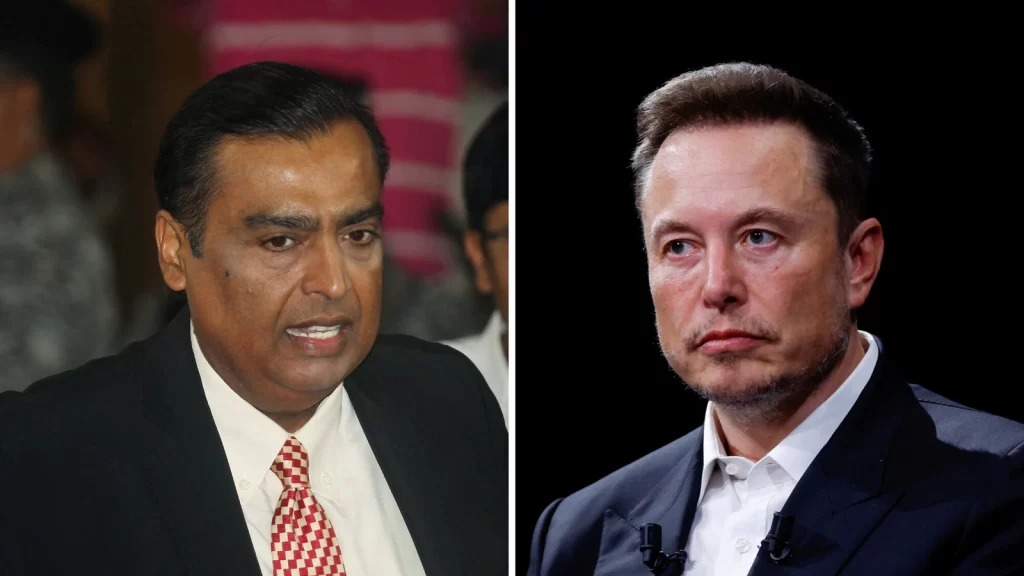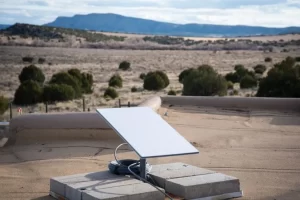
The competition between two of the world’s wealthiest individuals, Elon Musk and Mukesh Ambani, is heating up as they vie for dominance in India’s burgeoning satellite broadband sector. This rivalry intensified following India’s recent government decision to allocate satellite spectrum for broadband administratively rather than through traditional auctions.
Musk has previously criticized the auction-based model advocated by Ambani. The appeal of satellite broadband lies in its ability to provide internet access across vast areas where conventional services like DSL or cable are inadequate, particularly in remote and rural regions. This technology has the potential to bridge the significant digital divide that exists in many parts of India.
While the Indian telecom regulator has yet to announce pricing for satellite spectrum, projections indicate that satellite internet subscribers in the country could reach two million by 2025, according to credit rating agency ICRA. The market is competitive, with around six major players, with Ambani’s Reliance Jio currently leading the charge.
Jio has invested heavily in airwave auctions to secure its position in the telecom industry and has now partnered with Luxembourg-based SES Astra, a prominent satellite operator. In contrast to Musk’s Starlink, which employs low-Earth orbit (LEO) satellites for enhanced service speed, SES utilizes medium-Earth orbit (MEO) satellites, offering a more economical solution.
Musk’s Starlink boasts a fleet of 6,419 satellites and four million subscribers across 100 countries. The company has been seeking to launch its services in India since 2021 but has faced regulatory challenges that have stalled its entry. Many believe that a successful launch would support Prime Minister Narendra Modi’s efforts to attract foreign investment and bolster the government’s pro-business reputation, countering claims of favoritism towards domestic tycoons like Ambani.
India’s government defends its decision to allocate satellite spectrum without auctioning, arguing that this approach aligns with international practices. Analysts suggest that auctioning spectrum can impose high costs that may deter investment in satellite services. By opting for administrative allocation, the government aims to ensure that the spectrum is fairly distributed among qualified operators, creating a more competitive environment that could allow Starlink to participate.

However, Reliance Jio argues for an auction process, asserting that this would ensure a level playing field amidst concerns over the regulatory framework governing satellite broadband services. The company contends that recent advancements in satellite technology have blurred the lines between satellite and terrestrial networks, indicating that spectrum assignment should adhere to established auction processes unless exceptional circumstances warrant deviation.
Musk has publicly remarked on social media that the spectrum has long been designated by the International Telecommunication Union (ITU) as shared for satellite use, further complicating the discussion around allocation. Reports suggesting that Ambani has been lobbying the government to reconsider its decision have prompted Musk to express his willingness to discuss allowing Starlink to compete in the Indian market.
Ambani’s resistance to the administrative allocation method could reflect a strategic play, as analysts believe he may be positioned to outbid Musk in an auction scenario, potentially sidelining Starlink from the Indian market. This sentiment is echoed by Sunil Mittal, chairman of Bharti Airtel, who argues that companies wishing to target urban, affluent customers should acquire telecom licenses and spectrum like other operators.
With a significant portion of India’s population—nearly 40%—still lacking internet access, the stakes are high. The country’s internet penetration lags behind global averages, yet studies indicate that it is gradually closing the gap. Satellite broadband has the potential to play a critical role in expanding access, especially in rural areas.
Pricing will be crucial in this competitive landscape, particularly since India boasts some of the cheapest mobile data rates globally. Experts predict that a price war is inevitable, with Musk potentially leveraging his financial resources to offer promotional services to gain a foothold in the market. Starlink has already reduced prices in regions like Kenya and South Africa, yet challenges remain, as its service costs are significantly higher than those of established Indian broadband providers.
In conclusion, while Musk’s Starlink may enjoy a first-mover advantage, the satellite market’s development is often slow and fraught with challenges. The ongoing clash between these two billionaires signals a pivotal moment in the race to expand internet access across India, a contest that promises to shape the future of digital connectivity in the nation.







